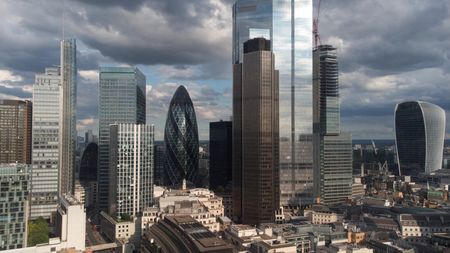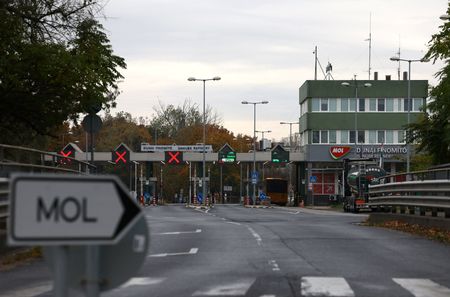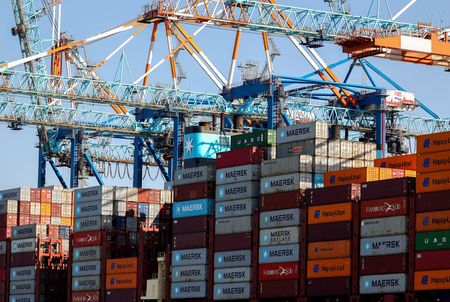LONDON (Reuters) -Britain’s inflation rate looks set to hit 4% in September in data due for release on Wednesday, the highest among the world’s big rich economies and double the Bank of England’s target.
The fast pace of price growth – while a lot lower than a peak of 11.1% in 2022 following Russia’s invasion of Ukraine -puts a strain on households and means borrowing costs are likely to stay higher than in other countries, at least in the short term.
It also adds to the challenge for finance minister Rachel Reeves who has promised voters that she will ease cost-of-living pressures and speed economic growth but is likely to raise taxes in her budget next month, potentially adding to inflation.
Below is an explanation of Britain’s price growth problem.
WHY IS UK INFLATION SO HIGH?
Britain’s inflation rate was 3.8% in August, much higher than the euro zone’s 2.0%.
A driver of British prices has been fast wage growth due in part to a worker shortage since the COVID-19 pandemic and increases to the minimum wage and employer taxes.
Like in other countries, energy and food prices rose earlier this year. Energy prices had exerted significant downward pressure on inflation in late 2023 and 2024.
WHAT ELSE IS DRIVING UK INFLATION?
Government-influenced prices are another factor. Higher sewerage charges, bus fares and vehicle excise duty and the introduction of value added tax on private school fees mean so-called administered prices in Britain have risen more sharply than in the euro zone.
Jack Meaning, chief UK economist at Barclays, estimated Britain’s inflation rate in August would have been around 2.9 excluding the impact of tax increases in Reeves’ budget last year and of administered prices.
While the BoE expects regulated electricity and gas prices to stop driving inflation in the coming months, food prices are likely to rise further.
Food retailers blame the increase in prices to date on a new packaging tax as well as the hike in employers’ social security contributions and the minimum wage and global prices. The BoE fears higher food prices drive up inflation expectations which can lead to price pressures becoming embedded in the economy.
WHY DOES IT MATTER?
British households – excluding pensioners – have seen very little growth in their living standards since 2010, when taking inflation into account.
Wage growth is running not far above inflation and is slowing, limiting any recovery in spending power.
High inflation also adds to the government’s debt bill – Britain has a bigger proportion of its bonds indexed to inflation than other countries, putting further strain on the budget at a time when other spending demands are rising too.
High inflation can slow long-term economic growth if it makes households want to save more to withstand future price shocks and deters businesses from developing longer-term plans.
WHAT’S LIKELY TO HAPPEN?
The BoE has forecast that consumer price inflation will peak in September but will only return to its 2% target in the April-to-June period of 2027.
Governor Andrew Bailey and his colleagues say the outlook for inflation is still unclear, making it hard to predict when interest rates are likely to be cut again.
(Writing by William Schomberg and David Milliken;Additional reporting by James Davey; Editing by Emelia Sithole-Matarise)












